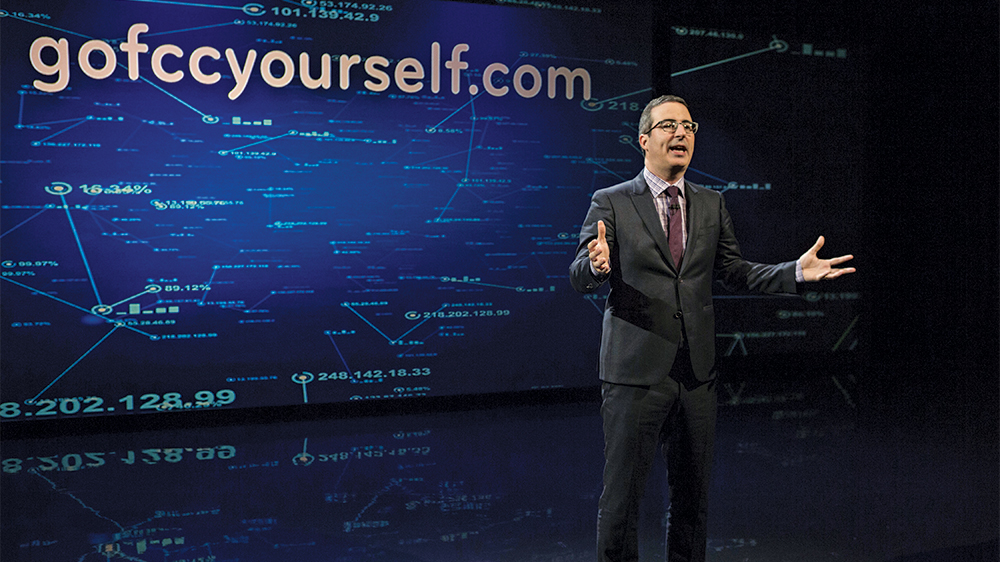FCC Inspector General: John Oliver Segment Triggered System Slowdown, Not Bots
By Ted Johnson
LOS ANGELES (Variety.com) – WASHINGTON — When John Oliver urged viewers of “Last Week Tonight” on May 7, 2017, to file comments to the ’s website, the system was soon overwhelmed. Traffic, in fact, increased by 3,116%.
But the next day, the FCC issued a press release blaming the slowdown of the system on denial of service attacks — or “deliberate attempts by external actors to bombard the FCC’s comment system with a high amount of traffic to our commercial cloud host.”
Now an investigation from the FCC’s inspector general has concluded that there was no attack and that, to put it simply, the system was just flooded by too many people responding to Oliver’s call to file written comments protesting the effort to roll back net neutrality rules.
In his report, made public on Tuesday, the inspector general concluded that the FCC, relying on information from its then-chief information officer David Bray, “misrepresented facts and provided misleading responses to Congressional inquiries related to this incident.”
Oliver’s segment was a warning that the FCC, under a new Republican majority, was looking to roll back the net neutrality rules put in place just two years earlier. That’s when the Democrats held a commission majority, and voted to reclassify internet service as a common carrier and established rules prohibiting blocking or throttling of traffic, or the sale of “fast-lanes” of traffic for speedier access to consumers.
Oliver provided links and a URL to viewers to file their comments, which proved to be just the start of a flood of appeals to the agency through the rest of the year. By the time the 3-2 vote came in December to repeal many of those net neutrality rules, the FCC had received about 22 million comments.
The inspector general’s report said the slowdown in the comment-filing system on May 7 and 8 of 2017 was “likely” the result of viewers responding to Oliver’s appeal and of “high volume traffic resulting from system design issues.”
Some lawmakers on Capitol Hill immediately seized on the breakdown of the system and demanded answers from Chairman Ajit Pai, while over the next several months there was suspicion among net neutrality advocates that such an attack really occurred.
The inspector general initially investigated who was responsible for the attack but, according to its report, “we learned very quickly that there was no analysis supporting the conclusion in the press release, there were no subsequent analyses performed, and logs and other material were not readily available.”
Pai, in a statement released on Monday, blamed Bray and noted that he “was hired by the prior Administration and is no longer with the Commission, provided inaccurate information about this incident to me, my office, Congress, and the American people.
“This is completely unacceptable,” he added. “I’m also disappointed that some working under the former CIO apparently either disagreed with the information that he was presenting or had questions about it, yet didn’t feel comfortable communicating their concerns to me or my office.”
Bray left the FCC last year, and now works as executive director of People-Centered Internet. He did not immediately respond to a request for comment.
Commissioner Jessica Rosenworcel, who opposed the FCC’s net neutrality repeal, said that that the investigation showed that the claim that the comment system was attacked was “bogus.”
“What happened instead is obvious — millions of Americans overwhelmed our online system because they wanted to tell us how important internet openness is to them and how distressed they were to see the FCC roll back their rights,” she wrote. “It’s unfortunate that this agency’s energy and resources needed to be spent debunking this implausible claim.”

